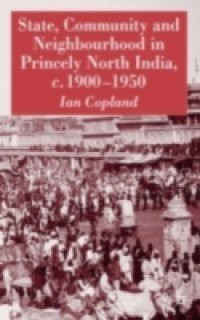Previous scholarship on 'communalism' in modern South Asia has focused almost exclusively on colonial British India, or on the contemporary Indian scene - on the post-1980 resurgence of communal rioting associated with the politicking of the Hindu Right. Copland's book adds a new dimension to this literature by factoring in the roughly 20 percent of the population of colonial India that lived in the erstwhile Indian 'princely' states.The starting point for the book is the apparent paradox that in HP, MP and Rajasthan the BJP since its inception has polled consistently well although these states sit in the bottom half of the Home Ministry's communal riot 'table'. Copland argues that this strange conjunction is a product of the fact that they were largely formed from ex-princely territories. During the colonial period, the princely kingdoms, with their culture of 'managed pluralism', experienced significantly less communal conflict, per capita, than the British provinces, and something of this legacy, he suggests, persisted after their integration into the Union.However Copland's statistics on communal violence in the states show a sharp rise in its incidence there after 1930. In 1947 some of the northern states suffered violence on a scale similar o that in Punjab and Delhi. In explaining this metamorphosis, the book throws new light on the growth of political activity in the states, on the relations between the Hindu and Sikh princes and British Indian communal parties such as the Hindu Mahasabha and the Akali Dal, on the origins of the Partition massacres, and on the dramatic impact on Indian society of the influx, after 1947, of millions of Hindu and Sikh refugees.

